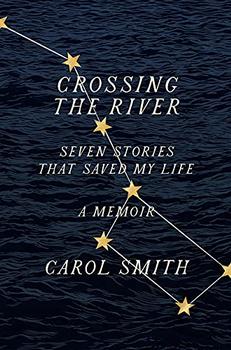Summary | Excerpt | Reading Guide | Reviews | Beyond the Book | Readalikes | Genres & Themes | Author Bio

Critics' Opinion:
Readers' Opinion:
First Published:
May 2021, 272 pages
Paperback:
May 2022, 272 pages
 Book Reviewed by:
Book Reviewed by:
BookBrowse First Impression Reviewers
Buy This Book
I'd feared these words for seven years. Christopher was born with a tiny developmental defect in utero that had blocked his urinary tract, damaging his kidneys. That seemingly insignificant error set in motion a kind of butterfly effect, a cascade of medical sequelae we later could not escape.
Yet he had survived. Against odds, medical crisis after medical crisis. Until now. Until this. An abdominal obstruction that unexpectedly claimed his life during the Christmas holidays while he was visiting his grandparents with his father. I could not forgive myself for failing at the only thing that mattered. I had survived. Christopher had not.
And I wasn't there to say goodbye.
In my fugue of grief, I could barely leave the house. Kathy had volunteered to help tell his class, sparing me the impossible task. She told the kids they could still talk about Christopher, about how he wore a Lion King costume for Halloween that year, how his eyes were the golden brown of maple syrup, how he loved trains. She asked the class to write down their Christopher stories.
Weeks later, I received their brief memories, printed with crooked block letters on lined paper, illustrated with hearts and stars and stick-figure children with oversize hands.
"He was my best friend," read one. "He played tetherball with me."
"When I hurt my knee, he got me a Band-Aid," read another.
Some were written with the curious syntax of a deaf child: "Chris heaven go." In some of them, Christopher hovered in the right-hand corner of a bright blue sky.
I envied them the comfort of these small tales. I had no language for stories, no words at all. Even the simplest statements didn't make sense anymore. Christopher is my son. Christopher was my son. I couldn't make either be true. The void of his loss was as indescribable as the darkness between stars.
The dictionary offers little help when it comes to grieving. There is no word for bottomless well or unanswered prayer, no word in English, like "orphan" or "widow," for a parent who has lost a child. In Sanskrit, vilomah means "against the natural order." Portuguese has saudade, an untranslatable word that describes a deep longing for a person who will never return. In Spanish, madrugada is the word for the ineffable dark between midnight and dawn. But what noun did any of those make me?
In the weeks and months after Christopher died, people stepped in to help. One of my old colleagues from the paper wrote Christopher's obituary when I couldn't. Other friends advised me to move home to Seattle to be near family. But that would mean packing up his room, and I could not bring myself to give his things away. When Christopher was little, I would sometimes discover my watch missing, usually when I'd been getting ready to leave for an errand or for work. I'd find the watch later, tucked into one of his many secret compartments for hiding schoolyard finds. Psychologists would have called this a "linking object," something to soothe the separation.
Now it was my turn to need a linking object. But what single, magic talisman could conjure Christopher back for me? I clung to them all—his windup dinosaurs and Slinky, his Batman Band-Aids and his red fanny pack with the blue asthma inhaler, his beloved View-Master.
Instead of packing, I cleaned his room the way I would when he left for school breaks with his father, my ex-husband. I threw out the dried‑up Magic Markers, boxed the outgrown clothes and toys for recycling, tidied up the art supplies, and gathered the ephemera of a seven-year-old's life for his scrapbook. I folded his clothes, put them in his closet, turned the calendar, and stacked his homework. I sorted puzzle pieces into their proper boxes and spent time playing with the things he'd been outgrowing—my ritual for remembering the stages he was passing through.
Excerpted from Crossing the River by Carol Smith. Copyright © 2021 by Carol Smith. Excerpted by permission of Abrams Press. All rights reserved. No part of this excerpt may be reproduced or reprinted without permission in writing from the publisher.





The House on Biscayne Bay
by Chanel Cleeton
As death stalks a gothic mansion in Miami, the lives of two women intertwine as the past and present collide.

The Flower Sisters
by Michelle Collins Anderson
From the new Fannie Flagg of the Ozarks, a richly-woven story of family, forgiveness, and reinvention.

The Funeral Cryer by Wenyan Lu
Debut novelist Wenyan Lu brings us this witty yet profound story about one woman's midlife reawakening in contemporary rural China.
Your guide toexceptional books
BookBrowse seeks out and recommends the best in contemporary fiction and nonfiction—books that not only engage and entertain but also deepen our understanding of ourselves and the world around us.